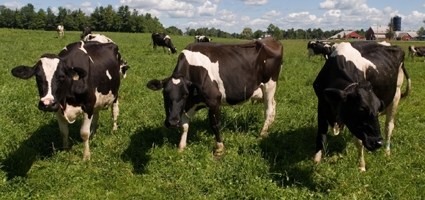Chenango farmers react to Farm Bill
CHENANGO COUNTY – President George W. Bush vetoed the long-overdue 2007 Farm Bill Wednesday, calling the $300 billion program fiscally irresponsible and unnecessarily “bloated” with subsidies for wealthy farmers.
With veto-proof majorities, Congress overid the President’s attempted block Wednesday.
For Chenango County dairy farmers, who produce 270 million pounds of milk annually, the bill increases the Milk Income Loss Contract (MILC) repayment from 34 to 45 percent when prices fall below a target price of $16.94 per hundred pounds. The bill also allows that target price to be adjusted to reflect the rising costs of feed and fuel, which went up 8.9 and 7.9 percent as early as 2006. For example, when the 2007 Farm Bill becomes law, the target price in May would be $19.13, instead of $16.94, according to supporter Senator Charles Schumer (D-NY).
The bill includes over $1 billion in funding for research, pest and disease control and general assistance for fruit, vegetable and specialty crop growers.
Sherburne dairy farmer Peter Lathrop supports the MILC initiatives, and considering milk prices in the Northeast are based on a complicated federal pricing system, he currently believes it’s still the best way to ensure dairy farms get a fair price. He also believes that adding a feed-cost adjuster is a step in the right direction, but he questions how far enough this farm bill goes.








Comments